Isgen Citation Generator
Our Free Citation Generator allows you to Instantly create, edit, and save citations in APA, MLA, Chicago, Harvard and Over 1000 different styles for free. Approved and Trusted by Experts worldwide!
Trusted by Educators Worldwide
Premium Benefits
Included in the premium Citation Generator
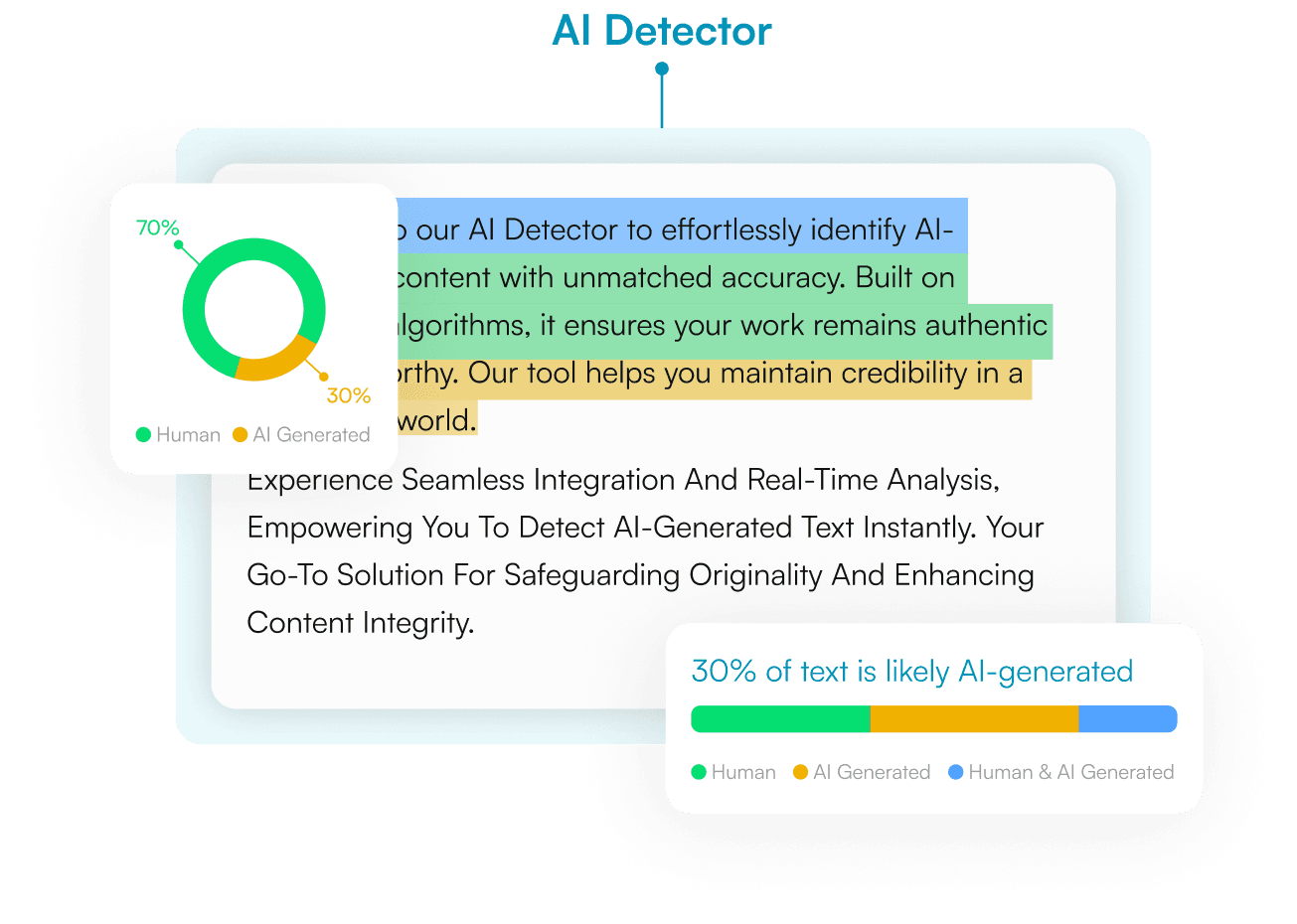
AI Detector
Scan your writing with a leading AI detector that identifies text generated with tools like Chatgpt, Claude, Gemini, and more.
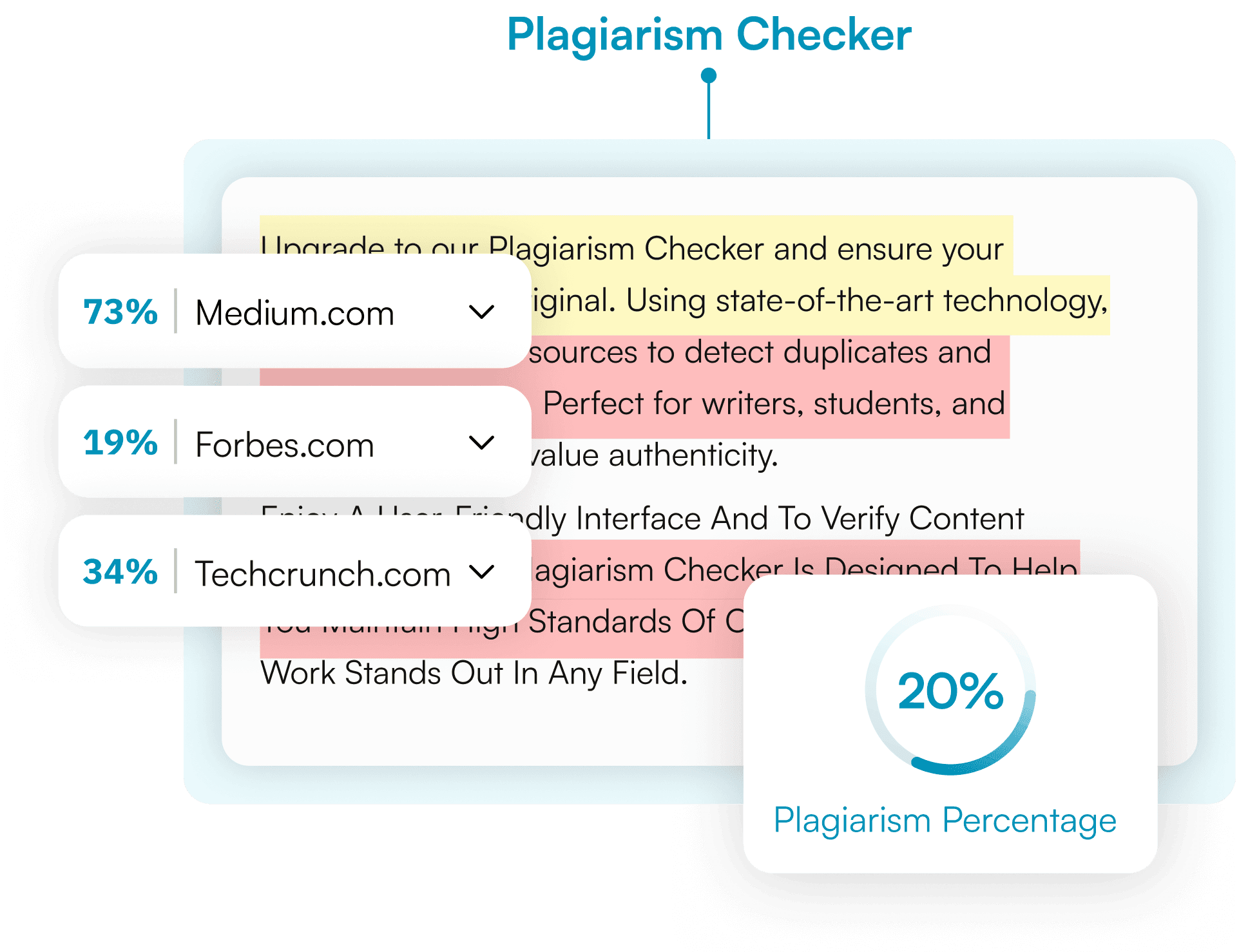
Plagiarism Checker
Identify plagiarism with a few clicks. Our free plagiarism checker ensures your work is truly authentic.

Grammar Checker
Use our free AI grammar checker and Proofreader to identify and correct grammar, spelling, punctuation and other writing mistakes.
Everything you need
Why Use Isgen Citation Generator?
- Perfect Citations, Every Time
- Forget the hassle of formatting. Isgen delivers spot-on citations so you can breeze through your work.
- Support for Your Language
- Isgen supports multiple languages, allowing you to generate citations that fit your preferred language seamlessly.
- Choose From 10,000+ Styles
- APA, MLA, Chicago? We’ve got you covered with all major citation styles. Just pick one, and you're set.
- Let Isgen Find Your Sources
- No idea where the information comes from? Relax! Save time and let Isgen automatically find relevant sources for you. Research made easy!
- Fast & Effortless
- With just a few clicks, your citations are ready in seconds. Say goodbye to stress and hello to smooth, easy writing.
Smart Citation Finder
Don’t have all the details for your source? No problem. Isgen’s smart algorithm can:
- Analyze the text you provide.
- Generate resources in PDF format.
- Search the web for relevant sources.
- Create citations in multiple languages.
- Refine your search; like books, google scholar, or the web.
- Organize sources by date and categorize them alphabetically.
- Automatically generate accurate citations based on the best matches.
Provide any excerpt, sentence, or phrase; you will get plenty of sources from which you can pick your potential citation. Isgen’s smart citations algorithm is well-trained to recognise context and provide the most relevant authoritative sources.
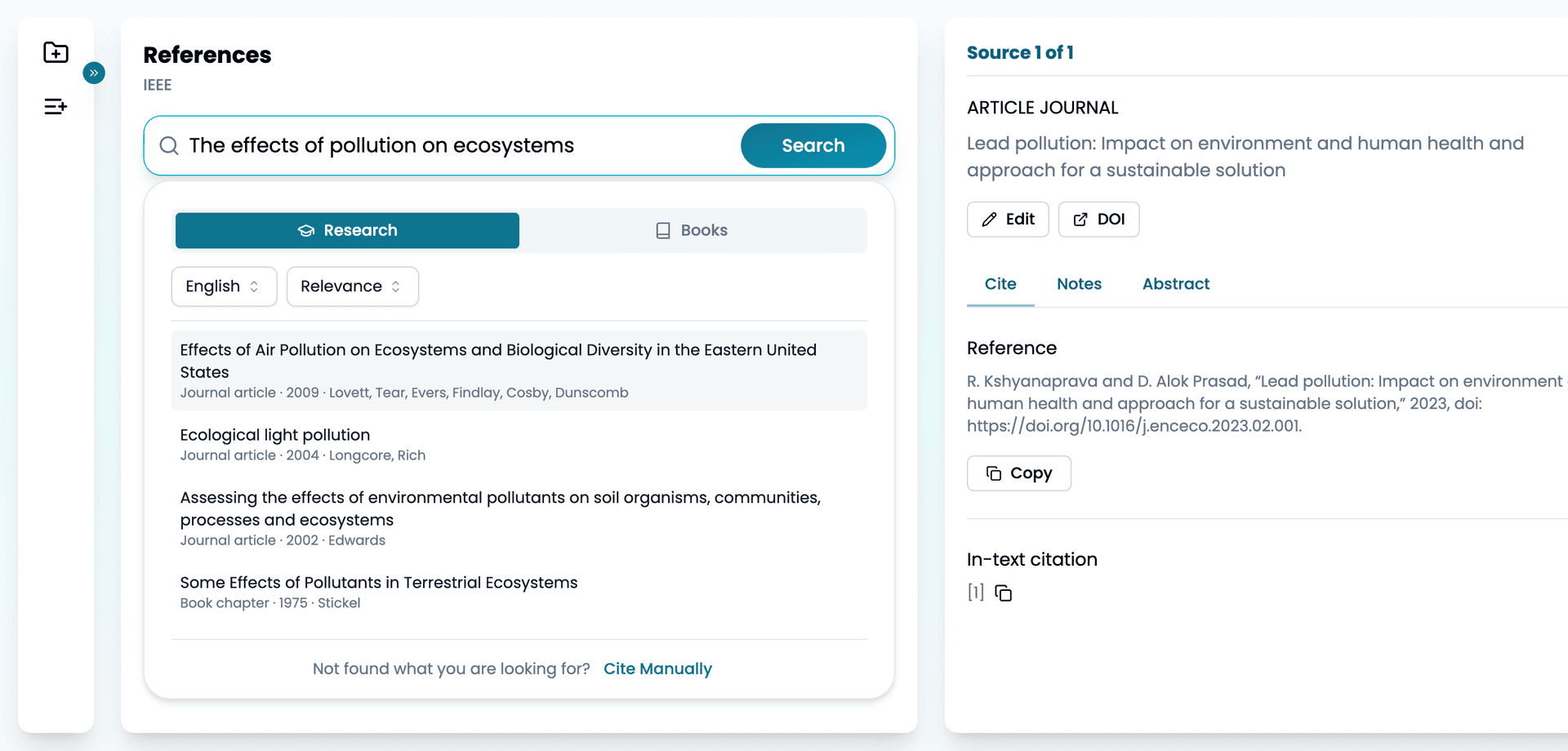
Citation Machine
With Isgen, creating citations is easier than ever. Simply enter your source details and choose from an impressive selection of citation styles supporting multilingual references. Whether your sources are in English, Spanish, French, or any other language, Isgen is multilingual and handles them seamlessly.
- Supported citation styles include:
- MLA Citation Generator
- APA 7 Citation Generator
- Chicago Citation Generator
- AMA Citation Generator
- IEEE Citation Generator
- Harvard Citation Generator
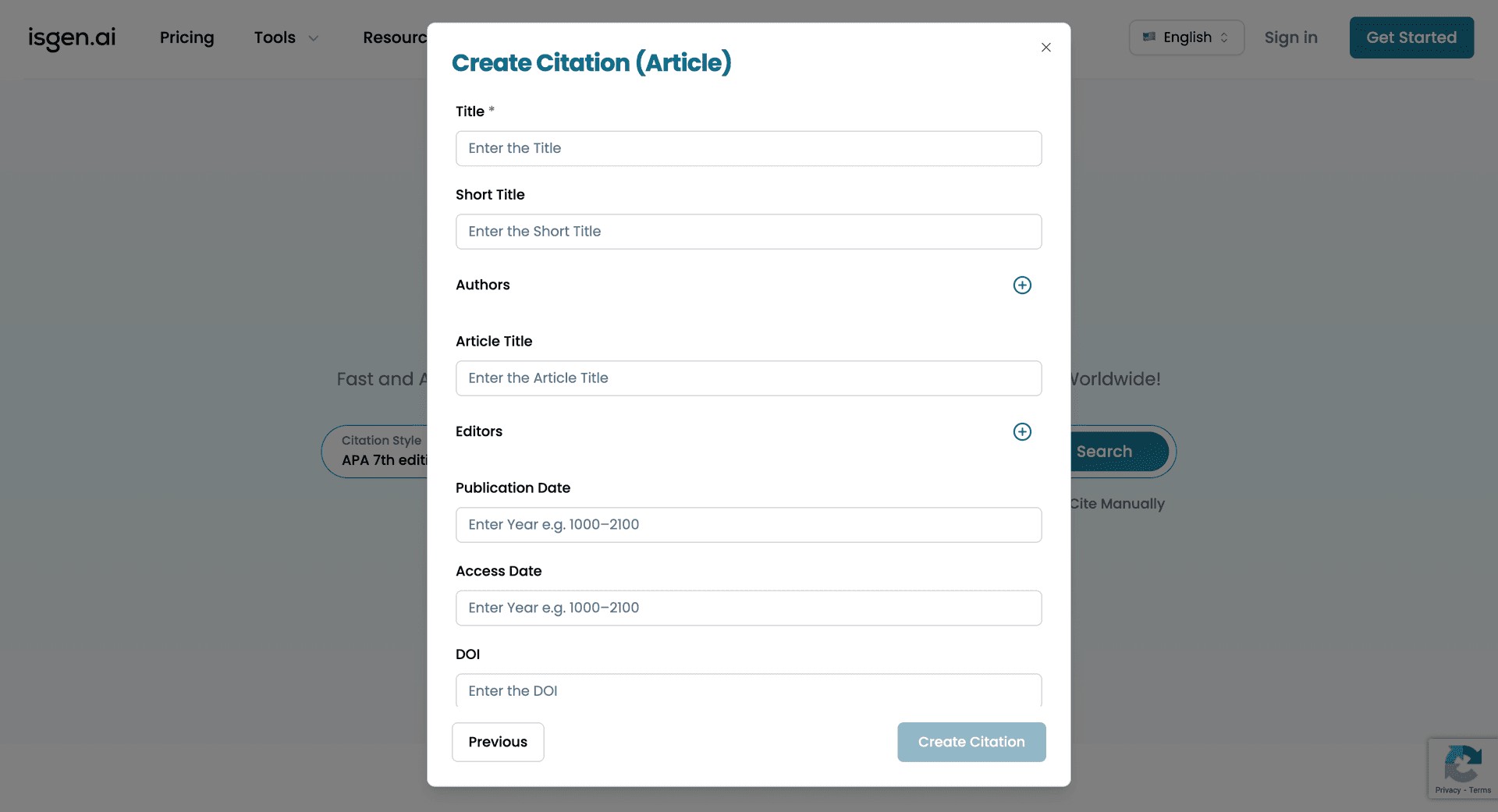
Support for over 50 languages
Multilingual Citations Generator
Isgen goes beyond standard citation tools by offering multilingual support. It ensures you can generate accurate citations in various languages. Whether you're working with sources in English, Spanish, French, German, Chinese, or any other language, Isgen adapts to your needs.
No need to worry about formatting complexities that come with foreign texts. Just input the details, and Isgen will handle the rest.
Everything you need
Exclusive Features
Your one-stop solution for hassle-free referencing, formatting, and organization. These exclusive features are designed to save you time and ensure your citations are always accurate, customized, and readily accessible.
- Autocite
Simply enter your source's title, URL, ISBN, or DOI, and let Isgen do the work! It’ll automatically fetch and fill in all the necessary details, saving you time and ensuring accuracy. Additionally, no matter what language you're working in, you’ll receive precise citations tailored to your needs.
- Word Exporting
Once your reference list is ready, simply export it to Word with a click. Isgen will automatically apply the correct formatting guidelines, making your citations perfectly polished and ready to go!
- Swift Customization
Match your reference list to your document’s style by choosing from popular fonts like Times New Roman, Arial, or Calibri. Customise the typeface to ensure your citations blend seamlessly with the rest of your work!
- Organize with Folders
Keep your projects neat and tidy by creating separate reference lists for each assignment. You can also group related lists into folders, helping you easily access your citations when you need them!
How Isgen's Citation Machine Works
Generate precise citations with a broad choice of source types, citation styles, and languages for any project.
Choose Your Source Type
Select from a range of sources including books, research papers, websites, articles, videos, and more.
Enter Your Info
Manually input essential information like author, title, publication date, and other relevant details for your source.
Pick Your Style
Choose from over 10,000 styles, including APA, Chicago, Harvard, or MLA, to perfectly match your project’s requirements.
Select Language
Isgen also allows you to select a language when citing information. Its algorithm supports over 50 languages. This ensures accuracy and fluency in your citations, regardless of your chosen language.
Create and Download
Simply click 'Generate,' and Citation Machine will create a perfectly formatted citation that you can easily copy or download.
AI-Powered Source Matching
Paste your text into Isgen’s search bar, and let AI automatically match your content with the most relevant sources.
Locale & Lang Identification
With support over 50 languages, Isgen can instantly identify regional variations and generate accurate citations tailored to your locale.
Research the Directory
Use the research directory to refine your results, filtering by research papers, books, or specific topics.
Select & Cite
Review the options, pick the most relevant source, and hit the cite button. It’s that simple!
How Isgen’s Automatic Citations Works
Utilize AI-powered search functionality for quick, and accurate citations by simply pasting your text and selecting your desired source.
Choose a citation style
Support for All Major Citation Styles
Isgen supports a comprehensive list of citation styles, ensuring you can always find the right format for your work. No matter what citation style you need, the Isgen citation machine has you covered. Additionally, a plus point here is that the citations generated are ready to paste right away. Each reference is thoroughly checked for grammar and structure, ensuring you receive perfectly formatted citations every time.
APA 6th Edition Citation Generator
APA 7 Citation Generator
MLA Citation Generator
AMA Citation Generator
ACS Citation Generator
CSE Citation Generator
ASA Citation Generator
Chicago Citation Generator
Vancouver Citation Generator
Harvard Citation Generator
OSCOLA Citation Generator
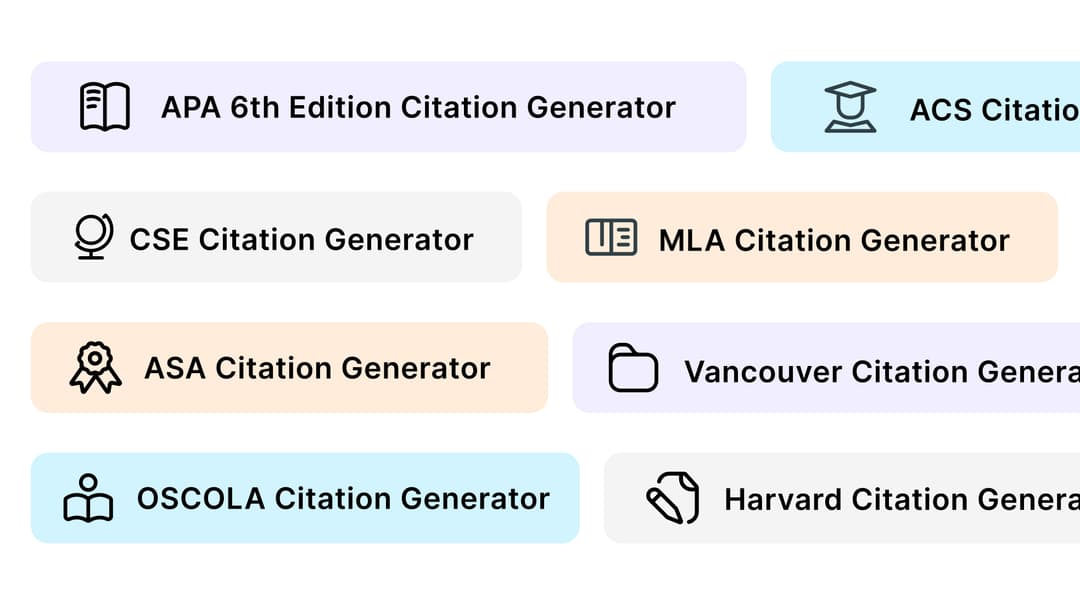
Introduction
Ever been knee-deep in writing, and then suddenly you realize you forgot where that perfect quote came from? We've all been there. Citing your sources can feel like a headache. But it's an essential step to give credit where it's due, avoid plagiarism, and keep your work polished and credible.
The good news? Sorting out your citations doesn't have to be a chore. With the right tips and tricks, you can document your references in no time. This essential guide will give you all the information you need to get started!
Where to Find Relevant Sources?
Not everything you see online can be considered a good source. Just because it's on the internet doesn't mean it's true, right? When looking for solid information, stick to sources such as:
Institutional Library Databases
Every institution has a library database packed with valuable information that experts have approved. When you skim through them, you can simply enter a keyword and find a huge selection of readings. These resources can include newspapers, books, and helpful articles.
Authoritative Research Directories
Authoritative research directories include high-quality academic sources that have been reviewed and validated by experts in the field. Popular options include Google Scholar, JSTOR, and PubMed. Academic excerpts need solid evidence from these trustworthy sources to stand strong. Without this backing, their validity comes into question.
Trusted Online Sources
Online sources, such as informative magazine articles and news articles, can also be good and reliable options for your research. These sources often provide timely insights into current events, trends, and discoveries across various fields.
Reputable magazines and news outlets usually have editorial standards that ensure the accuracy of their content. Try looking for established publications that are known for their quality journalism and fact-checking practices. Sources like National Geographic, The New York Times, and Scientific American are great examples of trusted online sources.
Isgen Citation Generator
Fast and Accurate APA, MLA, and Chicago Citations. Approved by Experts, Trusted Worldwide!
How to Evaluate Sources?
The internet is a vast world, and not every piece of information we encounter is accurate. So, what are the criteria for evaluating a source or determining the authenticity of information? Some effective strategies for that:
Comparing Credibility Across Multiple Sources
One of the most effective ways to evaluate a source is to compare it with others on the same topic. Look for agreement among different publications. If several trusted sources align on a specific point, the source is more likely to be accurate.
Applying the CRAAP Test
The CRAAP Test is another useful framework for evaluating sources. To effectively use this test, consider the following criteria:
- Currency: Is the information up-to-date? For many topics, especially in fields like science and technology, recent data is essential.
- Relevance: Does the source directly relate to your research question or topic? Consider the audience and purpose of the source.
- Authority: Who is the author? What are their credentials? Check their expertise and any affiliations they might have. Sources written by experts in the field are generally more trustworthy.
- Accuracy: Is the information supported by evidence? Are there citations or references that back up the claims made? Check for any errors or inconsistencies that might indicate a lack of reliability.
- Purpose: Why was the source created? Is it to inform, persuade, entertain, or sell? Understanding the intent behind a source can help you determine its potential biases.
How to Integrate Sources into Your Work?
Now, we arrive at an essential step: integrating sources into your work! You can't just write them without context and hope for the best. It's all about weaving them seamlessly into your narrative. Here's how to do it effectively:
Paraphrase or Summarize
Rather than using quotes word-for-word, try to summarize or paraphrase them to add a personal touch. By putting things into your own words, you not only make the content more engaging but also demonstrate your understanding.
By putting things into your own words, you not only make the content more engaging but also demonstrate your understanding. It shows readers that you’re confident in the subject and can explain it clearly in your own voice.
Let's take an example of a source that discusses global warming. It explains: 'The increase in global temperatures is primarily due to human activities, including burning fossil fuels and deforestation.'
Now, you can use this information in your writing by paraphrasing instead of quoting it directly. You can add: 'Human activities like burning fossil fuels and cutting down trees are mainly responsible for the rise in global temperatures.'
Use Direct Quotes Wisely
While paraphrasing is a fantastic tool, there are times when a direct quote can make a significant impact. Especially if the original wording is strong, it can add authority to your argument.
For example, consider a discussion about the importance of education. Instead of paraphrasing a well-known statement by Nelson Mandela, you might choose to quote him directly: 'Education is the most powerful weapon which you can use to change the world.'
However, it's important not to overdo your writing with quotes. Try to incorporate them thoughtfully throughout your work. Moreover, when you do include them, ensure they are relevant to your topic.
Cite Properly
Whether you're paraphrasing, summarizing, or using direct quotes, always give credit where it's due. Citing your sources shows your readers that your work is credible and well-researched.
Furthermore, citing also helps in avoiding plagiarism, which can seriously harm your integrity. The bonus part? It makes your arguments even more trustworthy because you're backing them up with reliable references.
For example, if you’re discussing the impact of climate change, you could say: 'Research shows that global temperatures have risen by approximately 1.2°C since pre-industrial times (NASA, 2021).' This way, you're clearly showing where your information came from.
Link Citations Properly
When you include citations, make sure they’re integrated smoothly into your writing. This means placing them in a way that feels natural and doesn't disturb the flow of your narrative. Instead of just writing a citation at the end of a sentence, consider weaving it into your discussion.
For example, you might say, 'According to Smith (2020), the effects of climate change are evident,' instead of just placing '(Smith, 2020)' at the end. This approach not only enhances readability but also strengthens your argument.
Tools to Simplify Your Academic Tasks
The academic field can be incredibly demanding, with constant research, studies, and projects that require your full attention. In such times, Isgen's tools can be a game changer. Here's how you can leverage Isgen's resources to streamline your academic tasks and enhance your efficiency:
AI-Detector
Originality is crucial in academic work, and Isgen's AI Detector is designed to help you achieve that. This advanced tool ensures that your content remains unique and free from the influence of AI-generated material. By thoroughly analyzing your writing, it identifies any similarities with existing AI-generated text, helping you uphold academic integrity.
Utilizing cutting-edge technology, Isgen's AI Detector is powered by large language models trained on millions of samples. This allows it to deliver phrase-level insights in just seconds, making the process efficient and user-friendly. Additionally, the tool supports over 80 languages, ensuring that researchers and students from diverse backgrounds can benefit from its capabilities.
Citation Generator
Proper citation is essential for any academic paper, yet manually formatting references can often be tedious. Isgen’s citation generator simplifies this process by allowing you to create accurate citations in various styles. With options like the APA 7 citation generator, MLA citation generator, and Chicago style citation machine, Isgen caters to all your citation needs.
Whether you require an APA 6th edition citation generator, AMA citation machine, MLA format citation generator, or ACS citation generator, Isgen has you covered. Its user-friendly interface makes navigation easy, enabling you to select from a wide range of options.
Additional citation styles available through Isgen include the Harvard citation generator, IEEE citation generator, Vancouver citation generator, and OSCOLA citation generator. For those specifically working with Chicago citations, the citation generator Chicago feature is tailored to meet your requirements. With the Chicago citation machine, you benefit from an added layer of convenience and next-level accuracy.
Whether you are exporting from the ASA citation machine in Word format or utilizing the APA citation machine PDF version, Isgen ensures that your references are formatted correctly. With your citations secured, you can give more time to research and meet the highest academic standards.
Source Finder
Finding trustworthy sources is essential for any research project. Isgen's Citation Generator makes this process easier by assisting you in locating high-quality references that relate to your topic. You simply need to input a keyword or an excerpt you’ve come across to in the citation generator.
After that, you can rely on Isgen to provide you with the most relevant results. Once you have got what you were looking for, you can choose it and let Isgen's speedy algorithms cite it for you.
FAQ
Frequently asked questions
Multilingual Fluency
Supported languages
Support for more languages is being added
citation machine
citation generator
apa citation generator
free mla citation generator
harvard citation generator
apa 7 citation generator
vancouver citation generator
citation machine apa
citation machine mla
american sociological association citation generator
ama citation generator
chicago citation generator
apa citations generator
ieee citation generator
acs citation generator
asa citation generator
cse citation generator
grammarly citation generator
american medical association citation generator